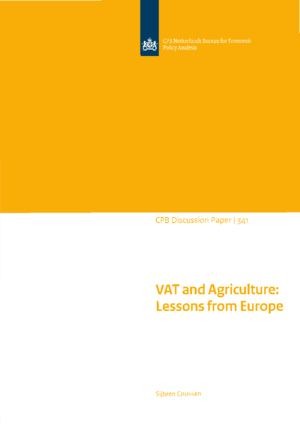VAT and Agriculture: Lessons from Europe
Farmers are often exempted from VAT for administrative and political reasons. But this means that the VAT on their inputs cannot be ‘washed out’ through the tax deduction/credit mechanism. It then has to be borne by the farmers themselves or becomes an indeterminate and capricious element in consumer prices. To compensate farmers for the uncompensated VAT on inputs, the EU has devised a flat-rate scheme that permits them to charge a presumptive rate (approximately equal to the effective VAT rate on sector-wide inputs) on their sales to taxable agro-processing firms which, in turn, are permitted to take a deduction for this flat-rate addition from the VAT on their sales. Obviously, the flat-rate scheme is an arbitrary way of trying to achieve equal treatment between exempt and taxable farmers and between exempt farm products and other taxable goods and services. Full taxation, subject to the general threshold, appears to be the preferred choice.
